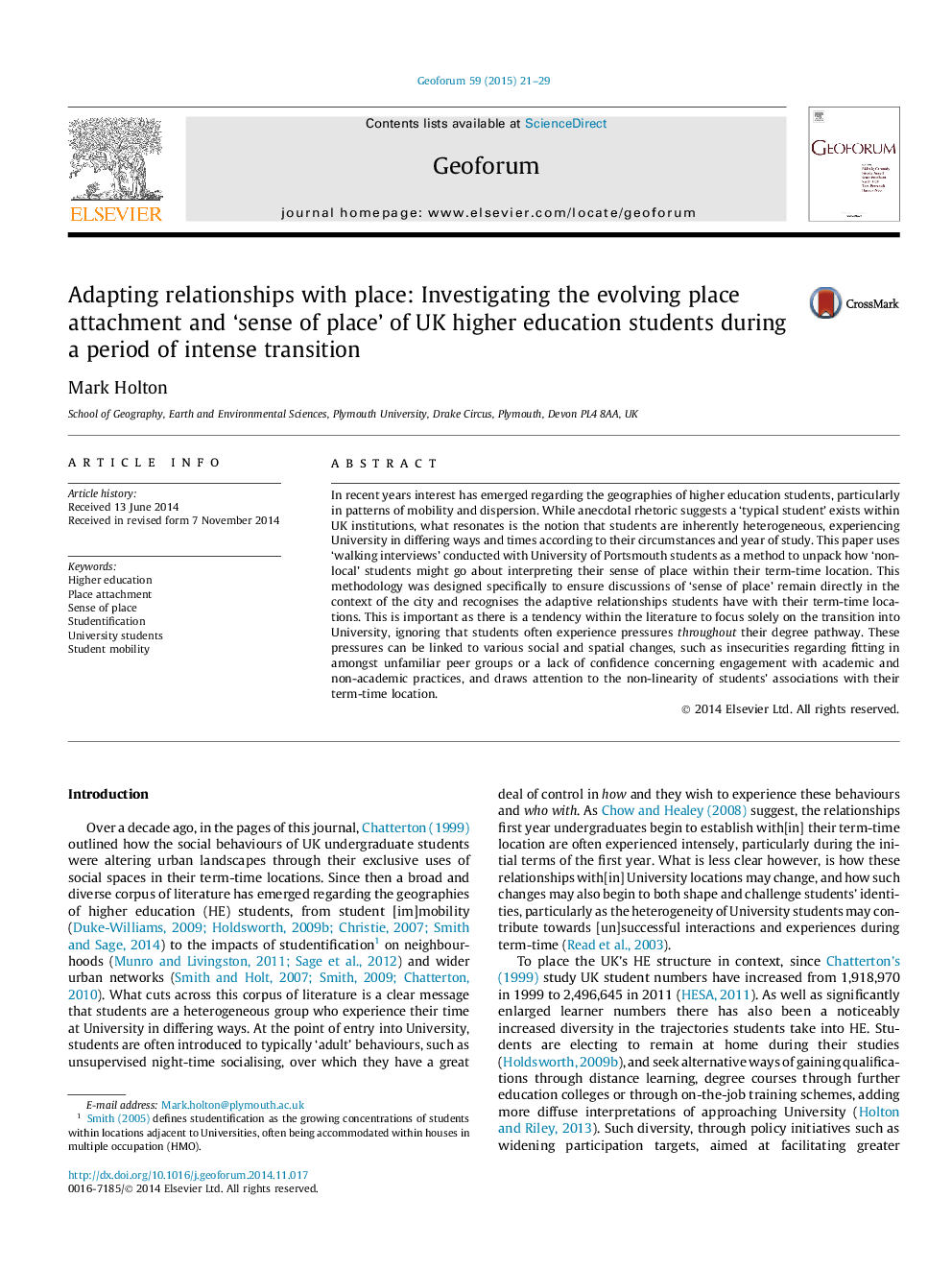| Article ID | Journal | Published Year | Pages | File Type |
|---|---|---|---|---|
| 5073964 | Geoforum | 2015 | 9 Pages |
Abstract
In recent years interest has emerged regarding the geographies of higher education students, particularly in patterns of mobility and dispersion. While anecdotal rhetoric suggests a 'typical student' exists within UK institutions, what resonates is the notion that students are inherently heterogeneous, experiencing University in differing ways and times according to their circumstances and year of study. This paper uses 'walking interviews' conducted with University of Portsmouth students as a method to unpack how 'non-local' students might go about interpreting their sense of place within their term-time location. This methodology was designed specifically to ensure discussions of 'sense of place' remain directly in the context of the city and recognises the adaptive relationships students have with their term-time locations. This is important as there is a tendency within the literature to focus solely on the transition into University, ignoring that students often experience pressures throughout their degree pathway. These pressures can be linked to various social and spatial changes, such as insecurities regarding fitting in amongst unfamiliar peer groups or a lack of confidence concerning engagement with academic and non-academic practices, and draws attention to the non-linearity of students' associations with their term-time location.
Related Topics
Social Sciences and Humanities
Economics, Econometrics and Finance
Economics and Econometrics
Authors
Mark Holton,
